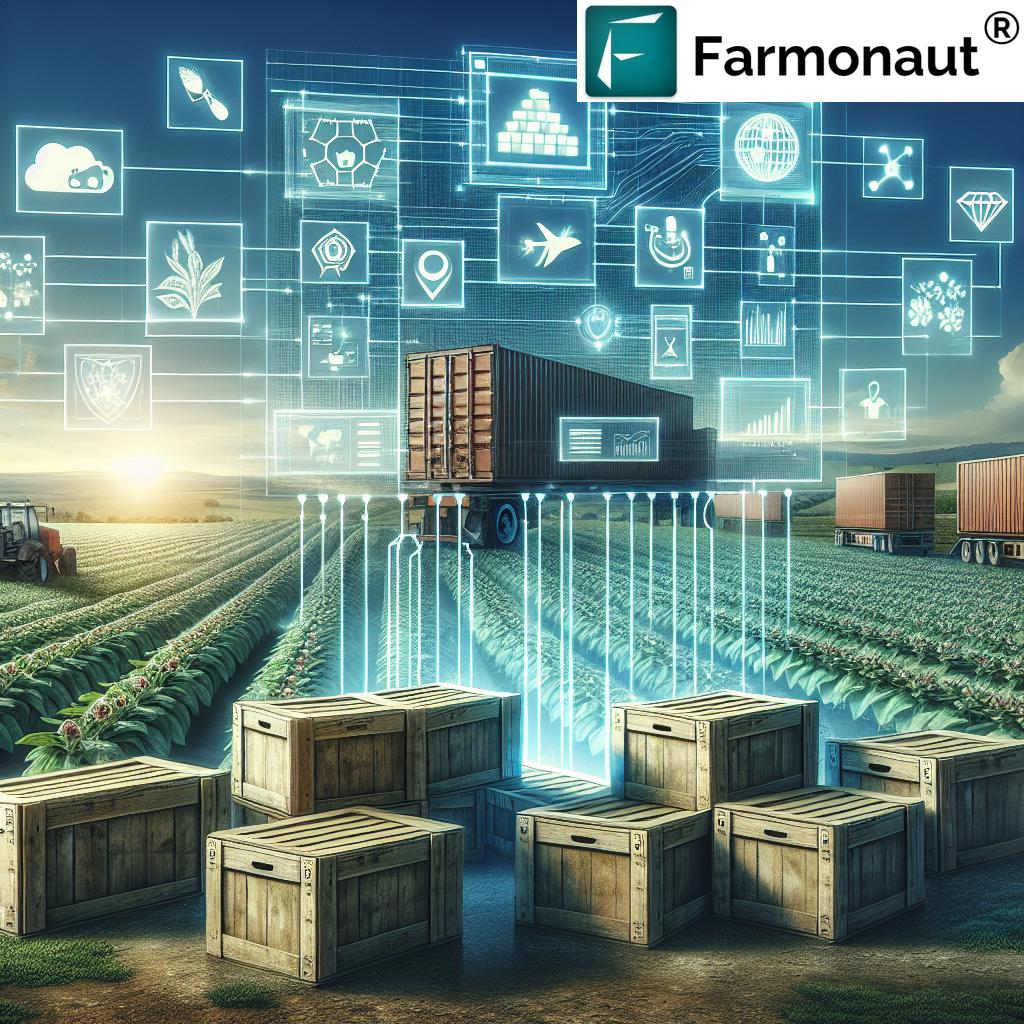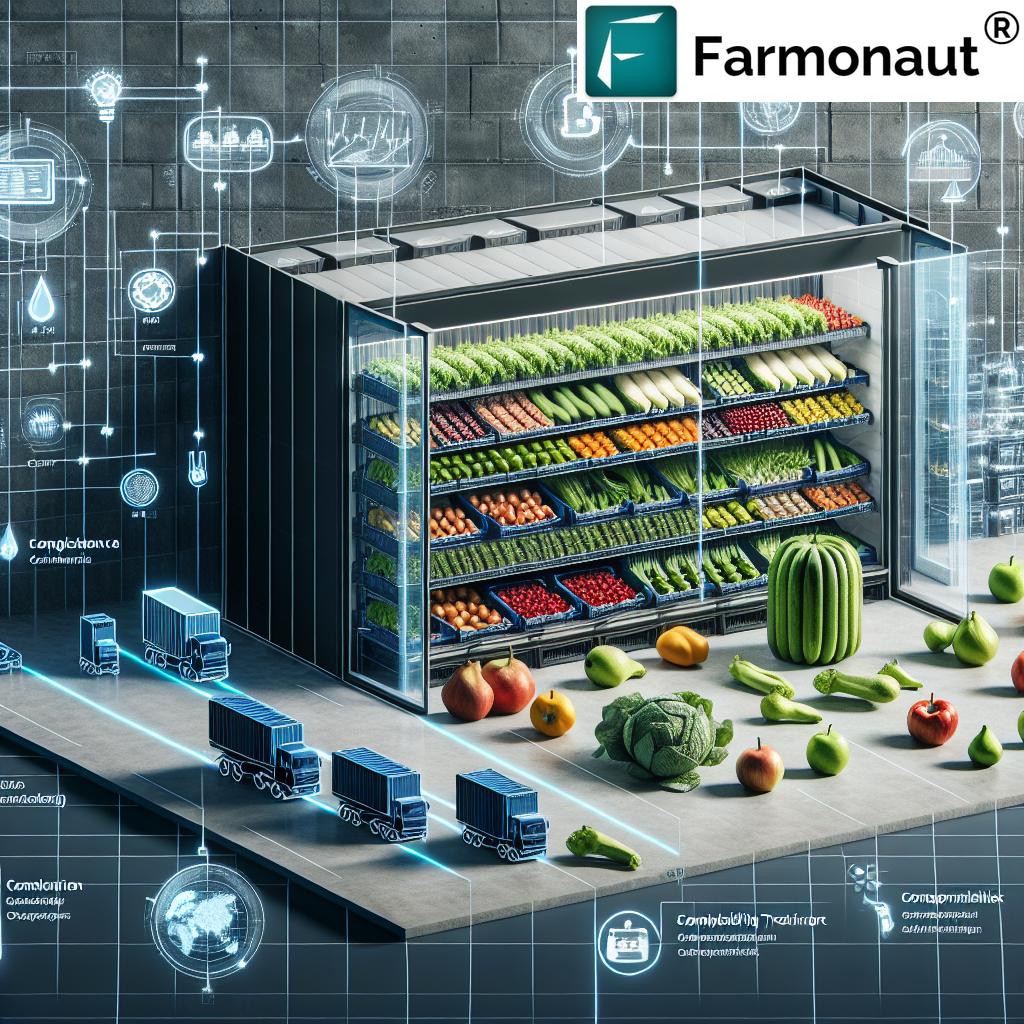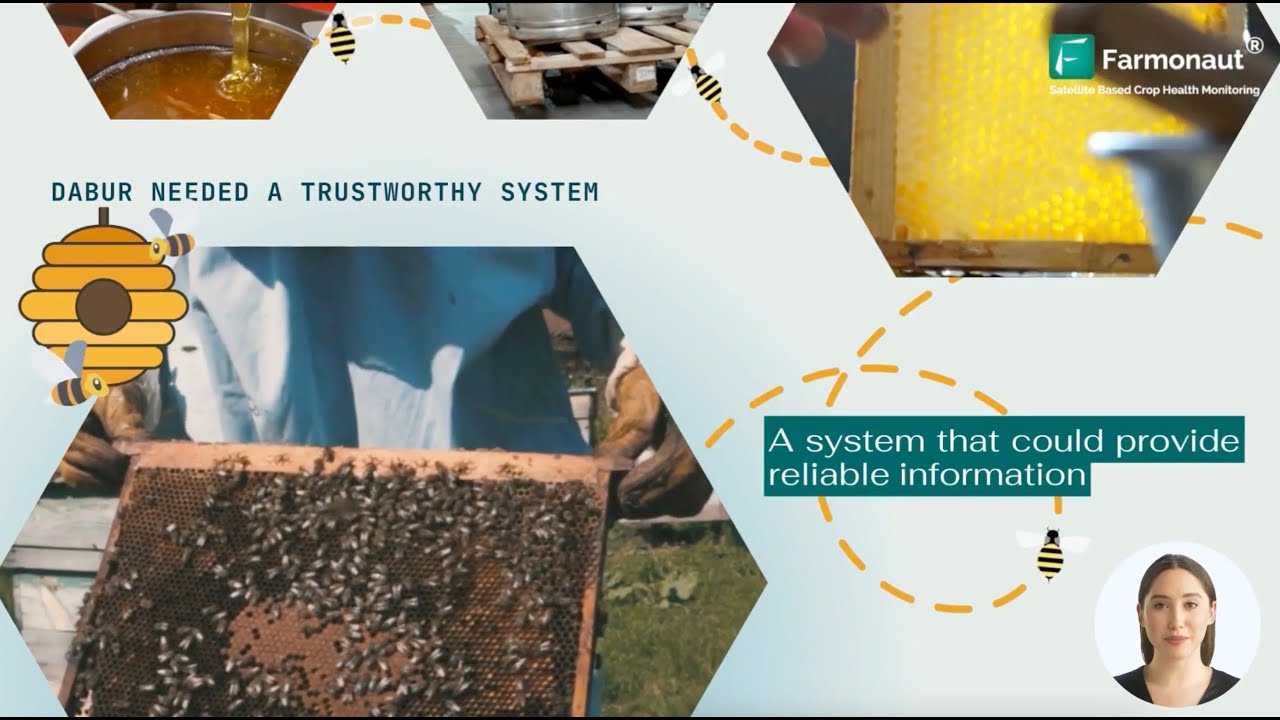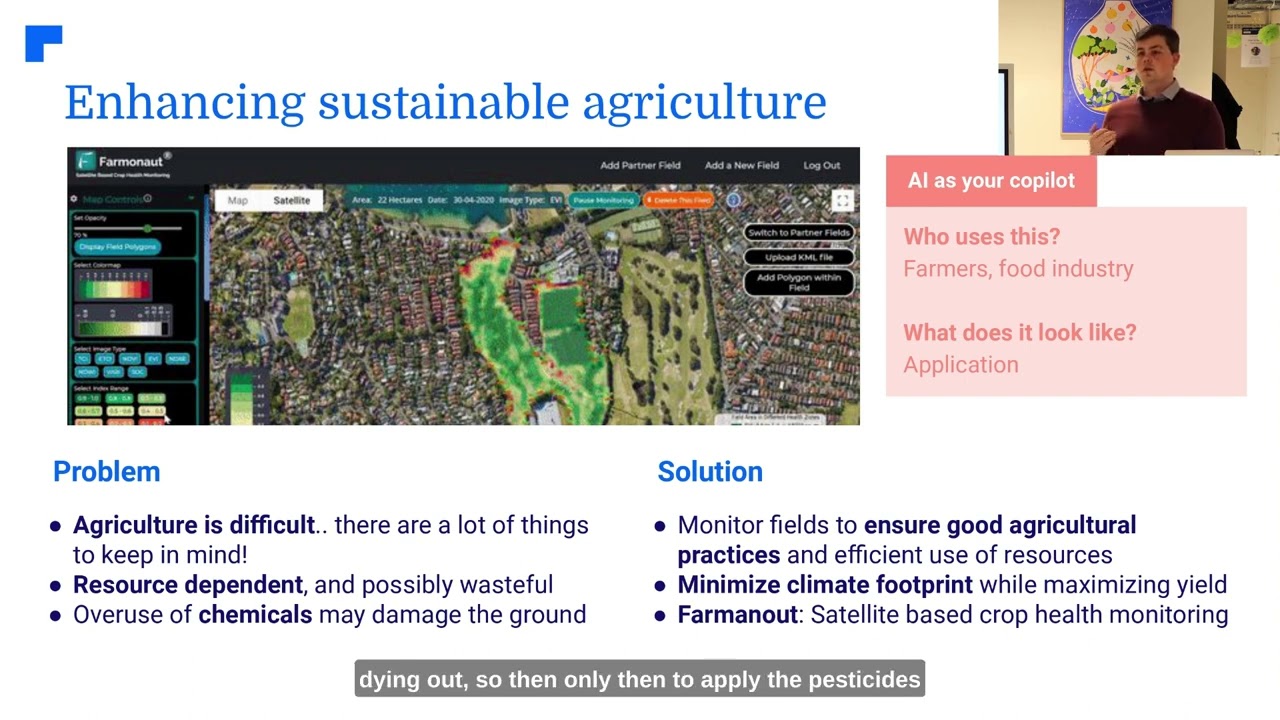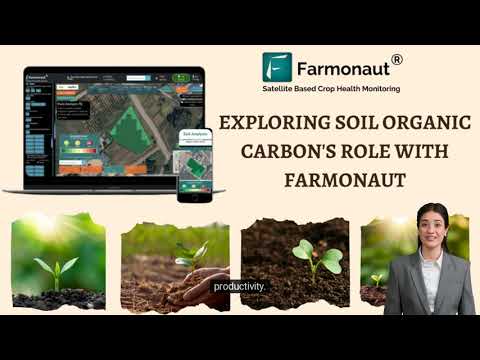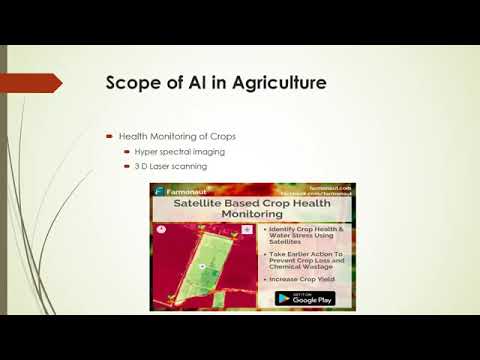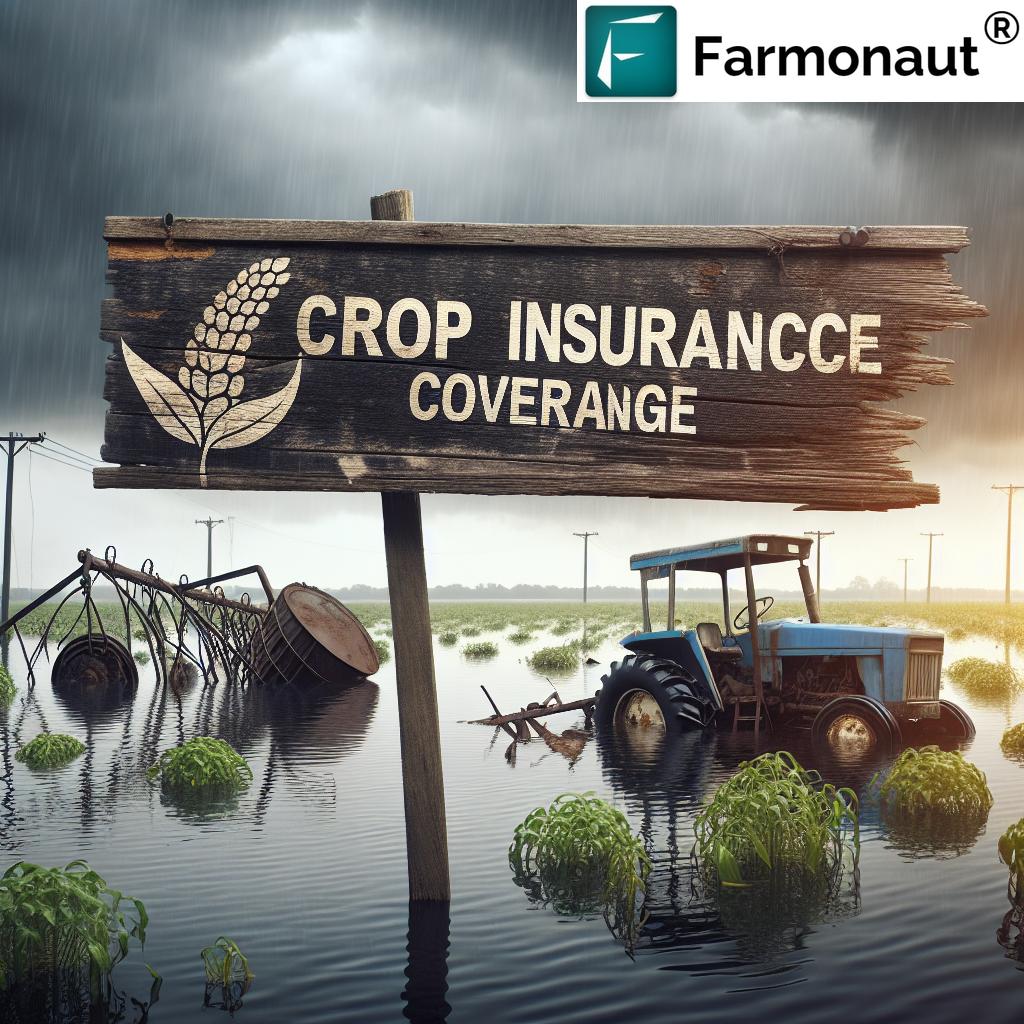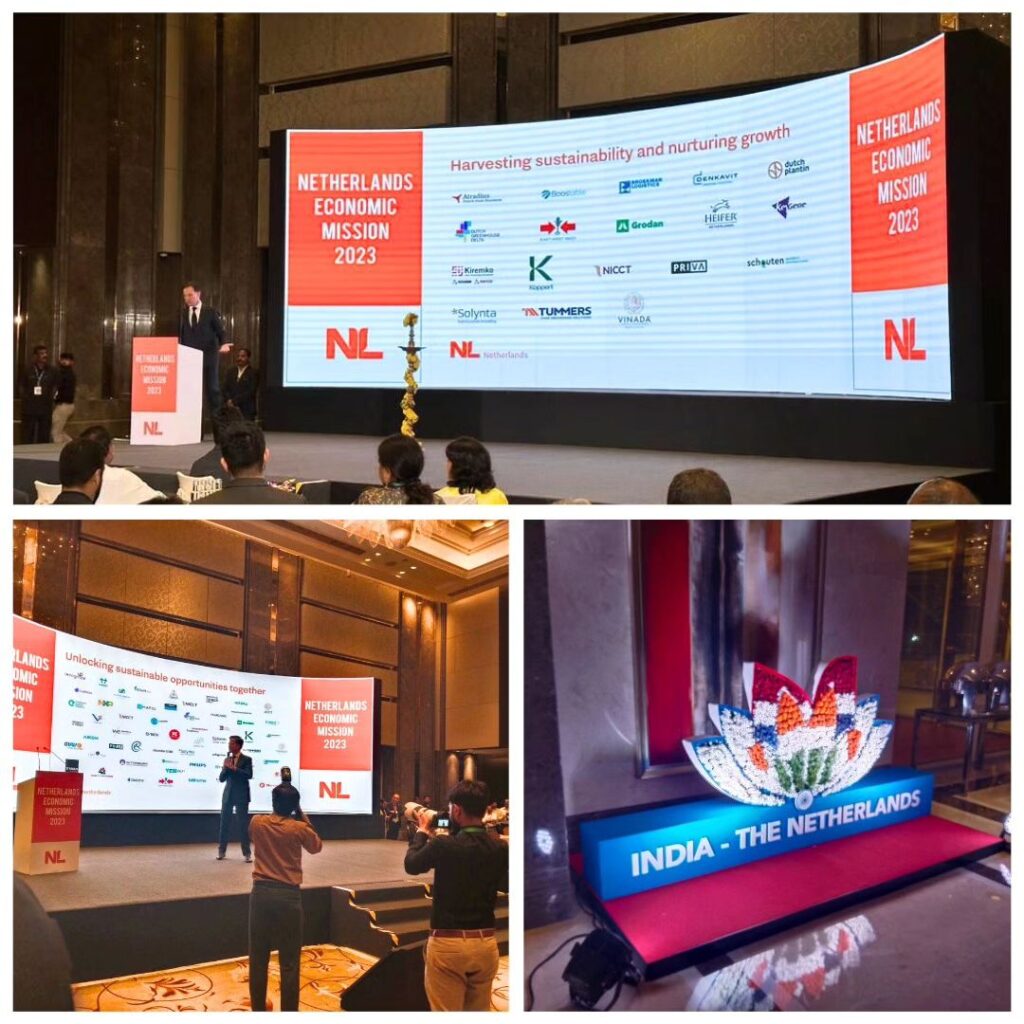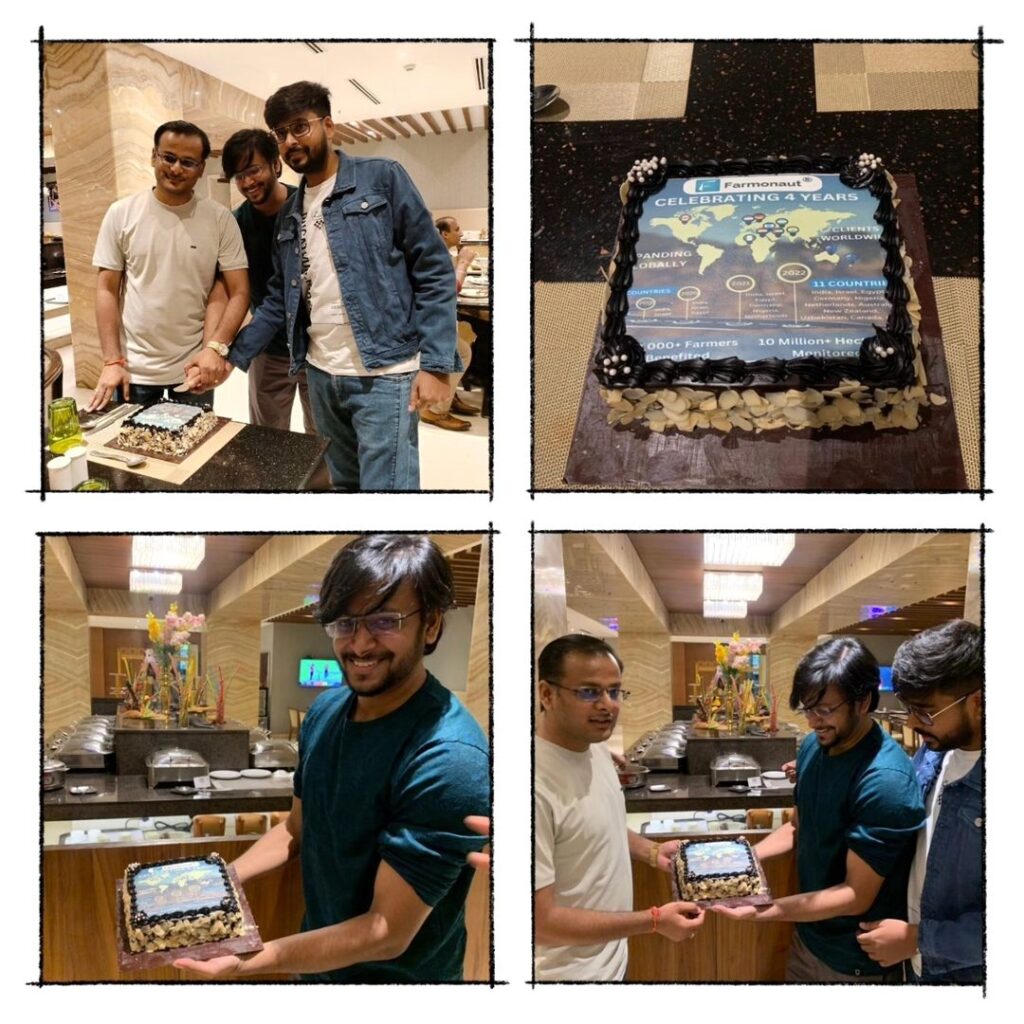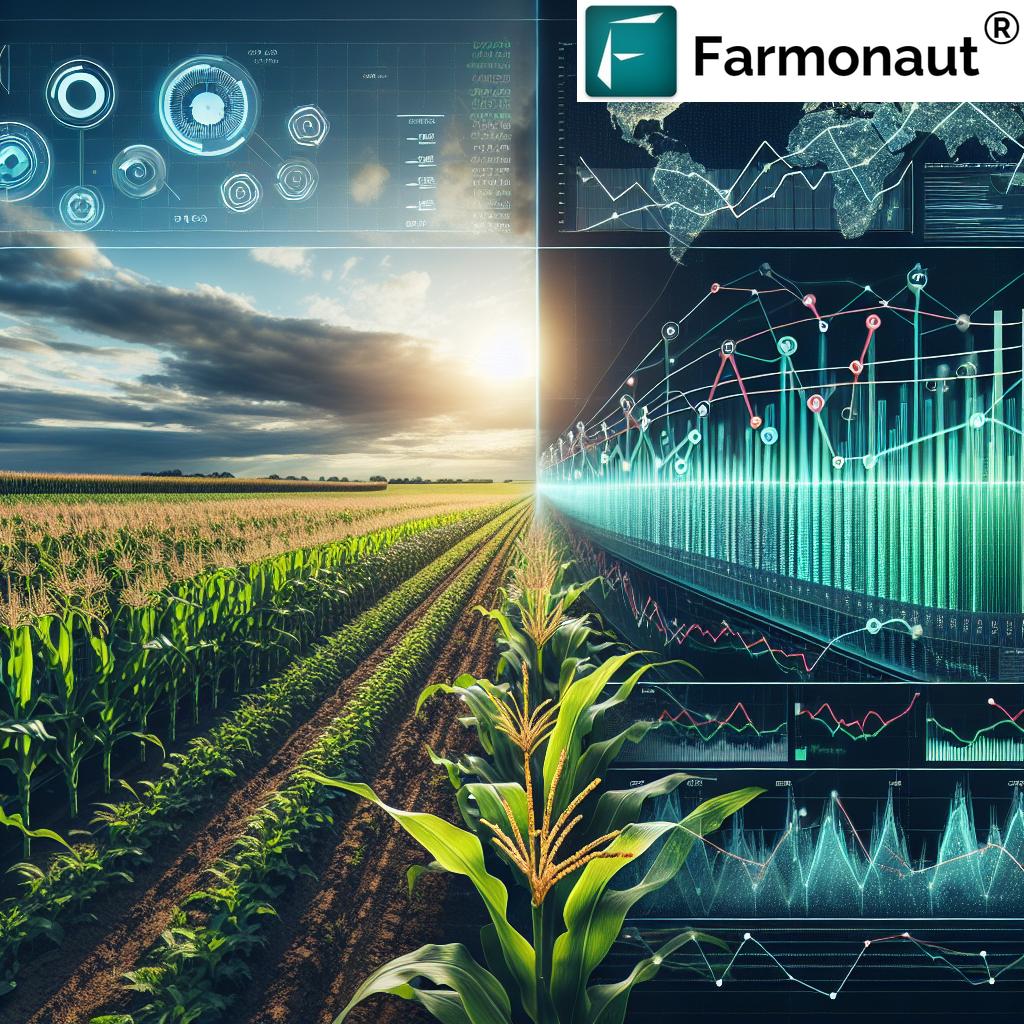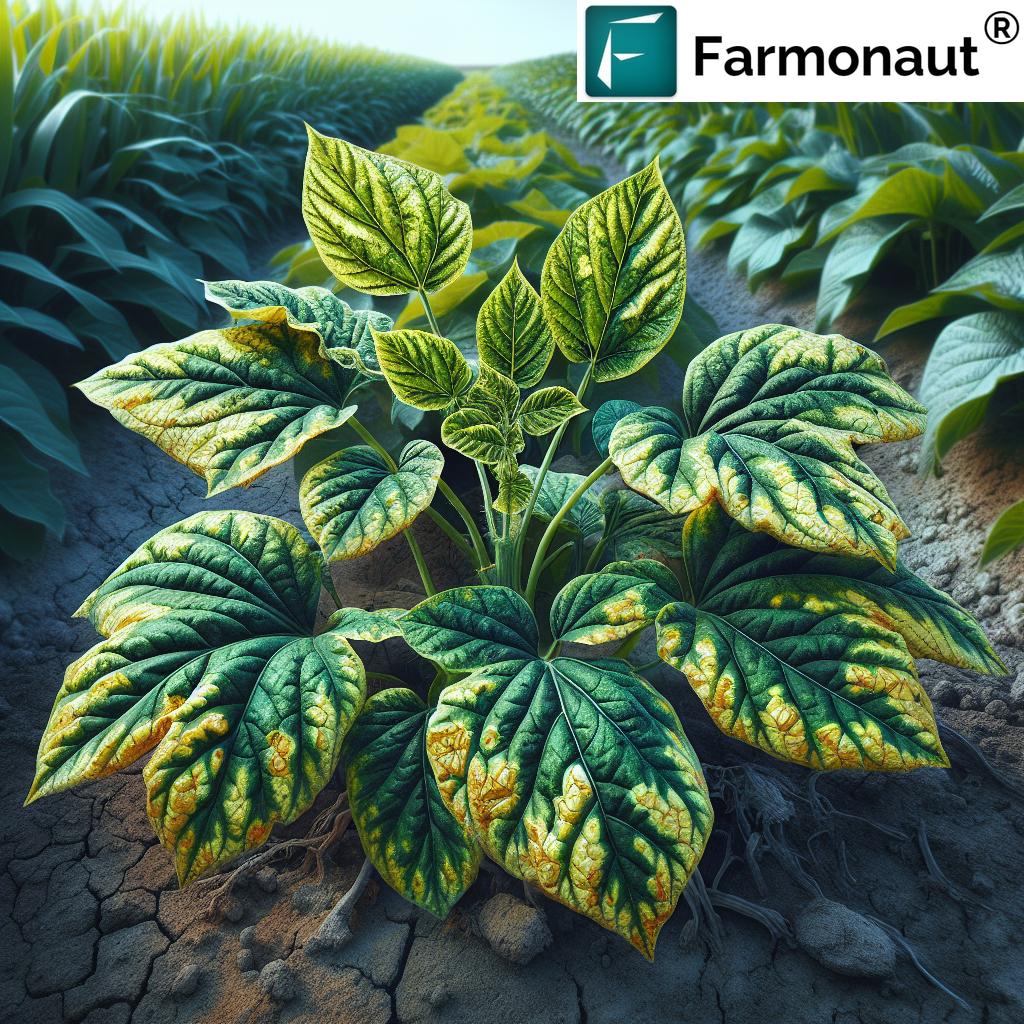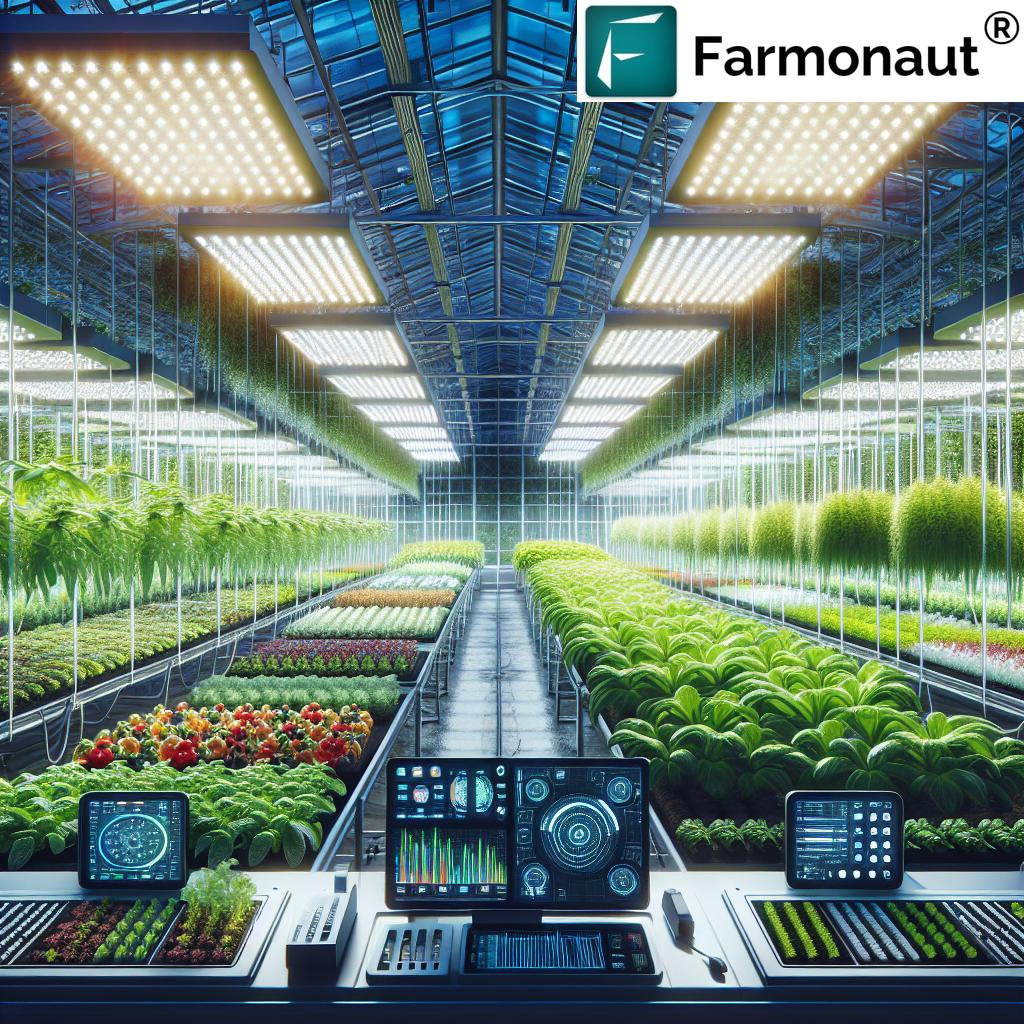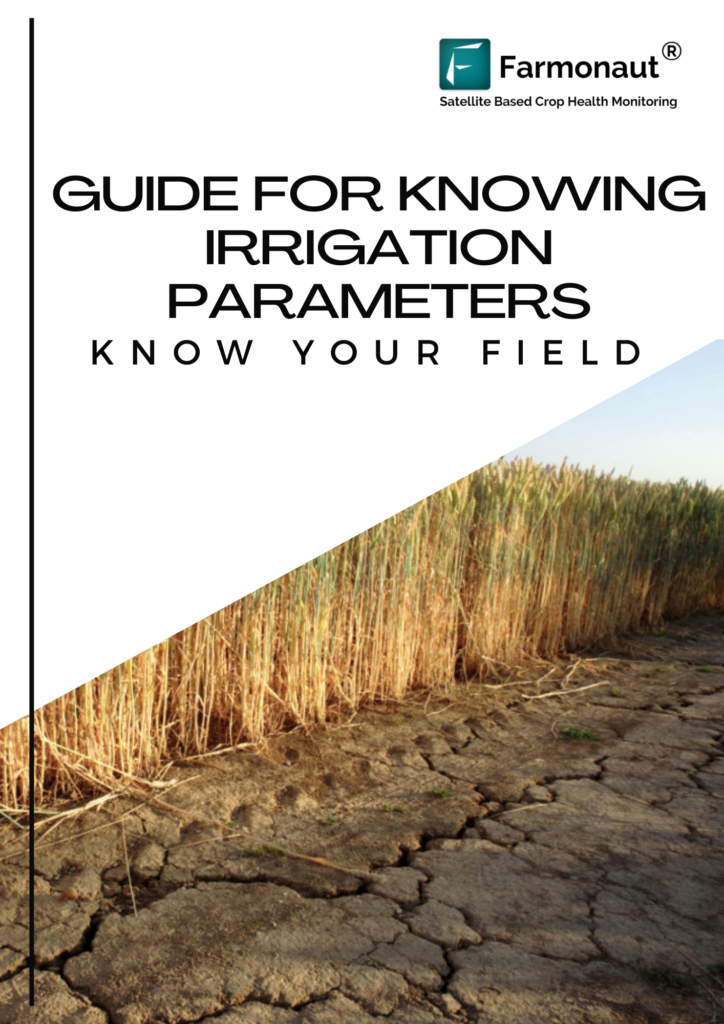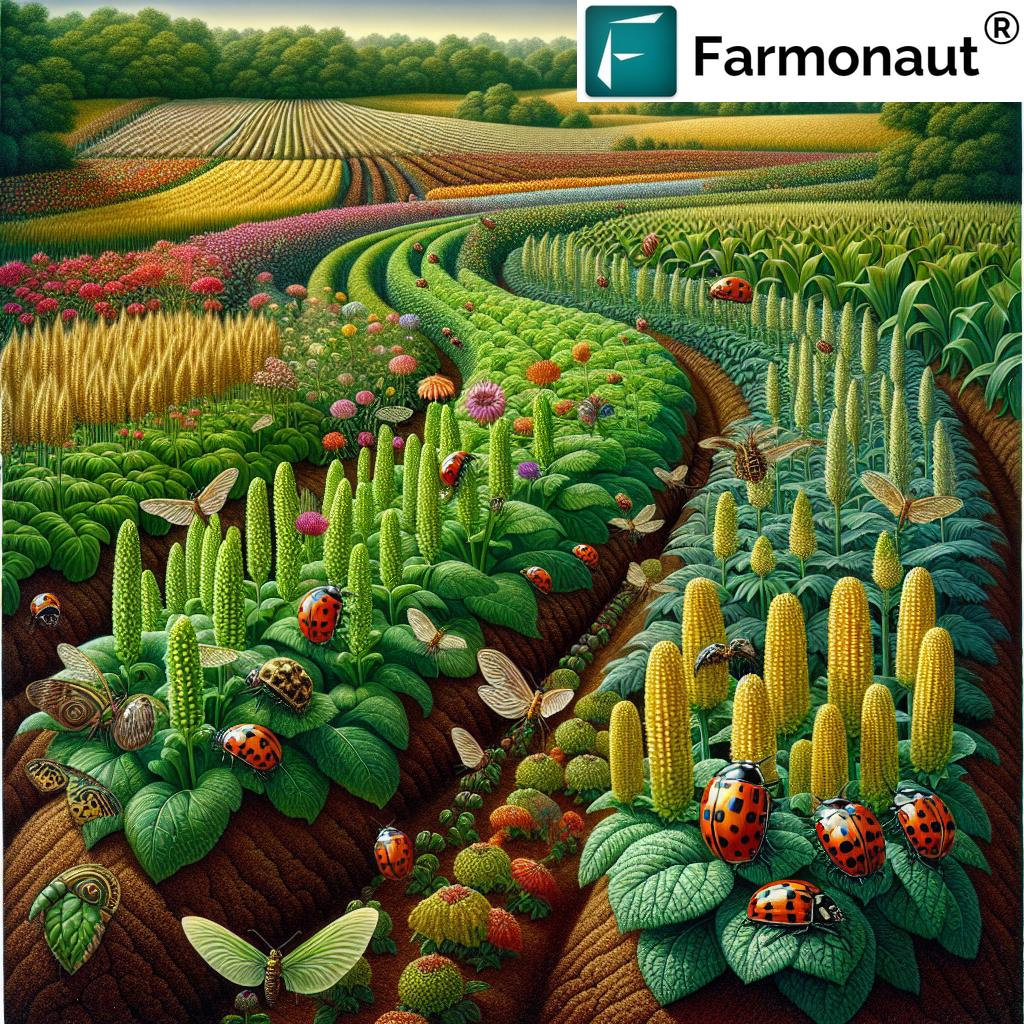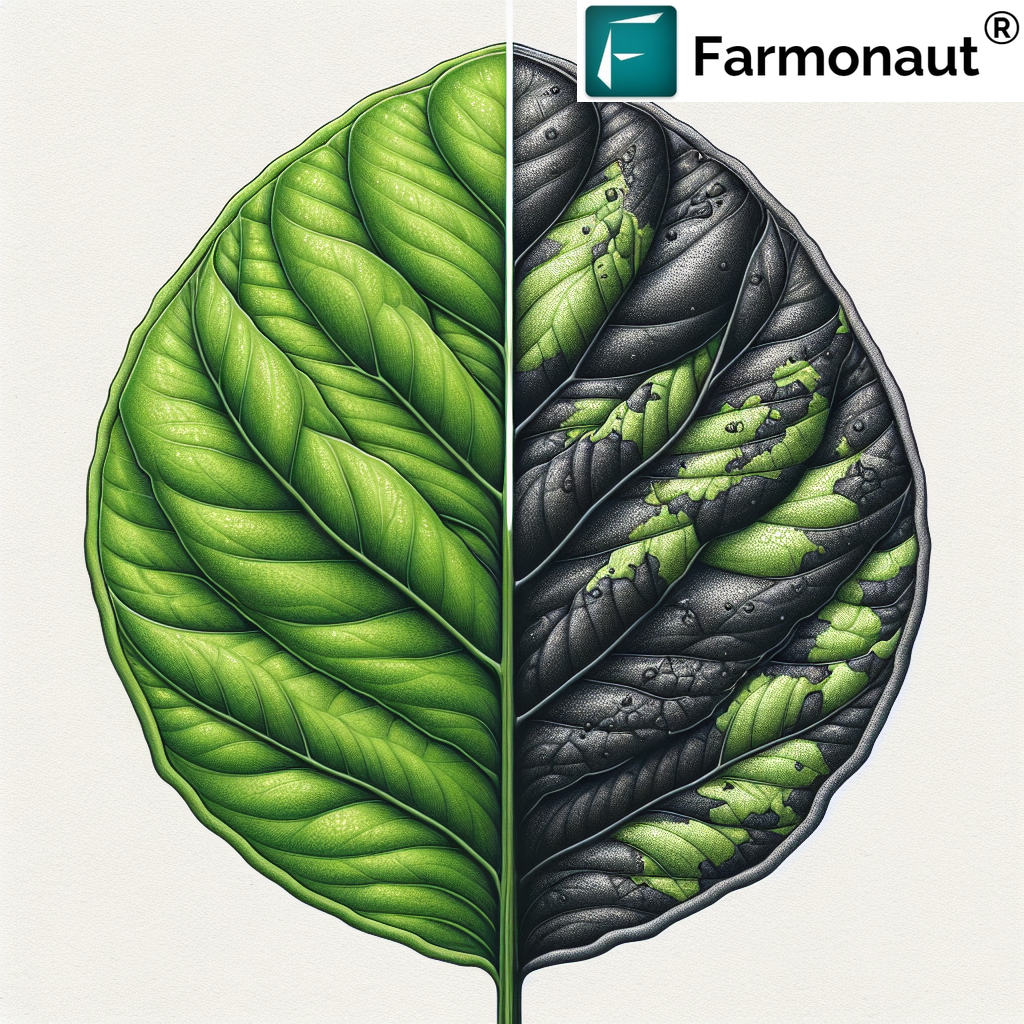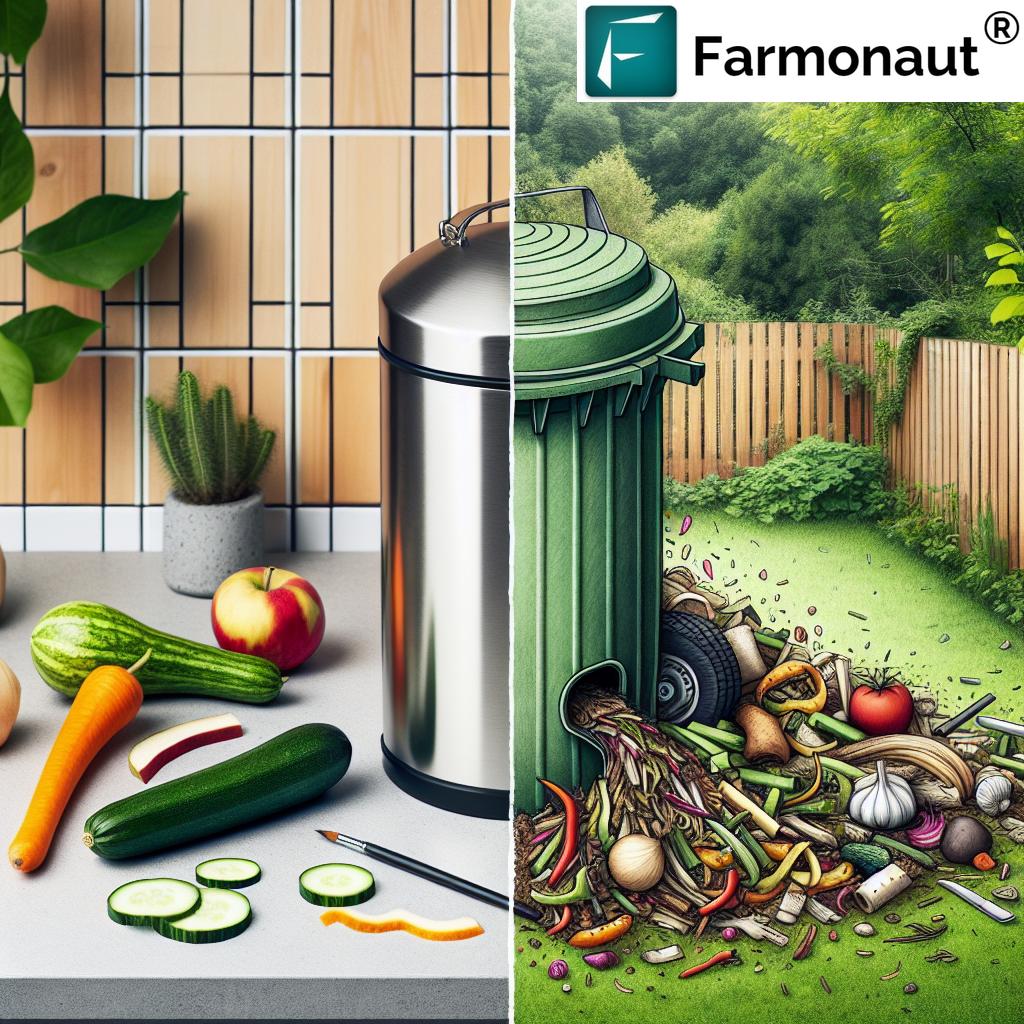Food Traceability Solutions: Unbelievable Tech Secrets!
Introduction: The New Era of Food Traceability Systems
Food traceability systems are reshaping the way we experience, manage, and trust our food supply chain. In today’s complex world of agriculture, farming, and forestry, being able to track, document, and verify the journey of food products—from seed or origin to the consumer’s plate—is no longer a luxury but a necessity. With consumers and regulators around the globe demanding transparency, safety, and sustainability, food traceability has become the gold standard for modern farming practices.
At the heart of this transformation are unbelievable tech secrets: blockchain-powered ledgers, smart sensors provided by the Internet of Things (IoT), advanced AI systems, satellite monitoring (Farmonaut reference), and seamless data integration tools. These disruptive technologies are boosting not only transparency but also safety, efficiency, compliance, risk mitigation, and even sustainability on a global scale.
As we dive deep into the core of food traceability in agriculture, we’ll discover innovative solutions, evolving standards, and the immense benefits that these tech secrets bring to farmers, businesses, regulators, and consumers alike.
Why Food Traceability Matters in Agriculture & Supply Chain
Food traceability systems have become fundamental pillars in our agri-food landscape. But why does traceability in agriculture really matter? At its core, it empowers us to track and document each step and every condition a product experiences, ensuring that food is safe, high-quality, and ethically sourced. Here’s why this matters for every stakeholder:
- Food Safety & Rapid Recall: Robust traceability allows quick identification and management of contamination sources. In the event of foodborne illnesses, this efficiency in tracking food origin is crucial for effective recalls, directly safeguarding public health and saving lives.
- Consumer Trust & Transparency: As consumers increasingly demand to know the source and journey of their food, traceability empowers brands to offer transparent farm to table stories. This builds enduring confidence and consumer loyalty.
- Regulatory Compliance: Many countries now require traceability for strict regulatory compliance. For example, under the European Union General Food Law, food business operators must be able to identify any supplier or customer of their products at any stage. This helps safeguard food systems and ensures food supply chains are accountable (Read More).
- Sustainability Monitoring: Transparent tracking supports sustainable farming practices by allowing monitoring of every input’s impact, reducing risks such as deforestation or excessive pesticide use, and paving the way for better environmental stewardship.
With foodborne diseases posing severe risks worldwide and consumers demanding more transparency in food systems, the adoption of advanced traceability technology in farming is not just an option—it’s essential.
Technologies Transforming Food Traceability Systems
In the past decade, technological advancements have supercharged the capabilities of food traceability systems. Today, let’s uncover the tech secrets driving traceability success:
Blockchain in Food Supply Chain
Blockchain technology is a game-changer, providing a secure, transparent, and immutable ledger that records every event in the agriculture supply chain. Each transaction—from harvesting to processing to delivery—is recorded and timestamped, ensuring data integrity and accountability. Even a customer can verify food provenance or track quality through simple QR code scans, effectively reducing fraud and strengthening trust.
Focusing on transparency and efficiency, Farmonaut’s blockchain-based traceability solutions elevate farm-to-table accountability and ensure that no step of a product’s journey is untracked or compromised.
IoT in Agriculture: The Power of Sensors and Devices
The Internet of Things (IoT) is connecting farms, warehouses, and even delivery trucks using smart sensors and RFID tags, delivering real-time data on critical conditions like temperature, humidity, GPS location, and storage status. This results in:
- Instant anomaly alerts (e.g., temperature spikes for perishable produce), reducing risks of spoilage and contamination.
- Seamless integration with blockchain for tamper-proof end-to-end records.
- Improved operational efficiency and resource optimization in farming.
Artificial Intelligence (AI) and Machine Learning: Pattern Recognition & Prediction
AI transforms food safety and traceability by processing vast data—identifying trends, detecting anomalies, and even predicting food safety issues before they arise. Examples include:
- AI monitoring of crop health and weather conditions enhances predictability for supply and product quality.
- Machine learning detects irregularities, alerting stakeholders rapidly to potential challenges or threats in the food supply chain.
Farmonaut’s Jeevn AI Advisory System provides farm-specific, actionable insights by digesting real-time satellite and IoT data—empowering farmers to solve problems proactively and efficiently.
Satellite Imaging & Remote Sensing for Food Traceability
Using remote sensing and multispectral satellite imagery (a core Farmonaut technology), farms can now monitor:
- Crop health, soil moisture, and vegetation indices (NDVI), ensuring that food is grown under optimal, safe, and sustainable conditions
- Inputs and impacts—fertilizer, pesticides—with auditable, location-stamped evidence
- Deforestation or land use changes impacting the environment and compliance
This real-time data supports smart, sustainable farming decisions, improving both food safety and environmental stewardship.
Digitized QR Codes & RFID Tag Systems
Barcodes, QR codes, and RFID tags attached to products or containers provide instant access to an entire product journey: showing supply chain steps, farm information, conditions during transportation, and even environmental impact certifications. These systems empower consumers and retailers to verify product authenticity and origin with a simple scan.
Farmonaut’s Game-Changing Innovations
At Farmonaut, our commitment is to make precision agriculture, food safety, and traceability in agriculture accessible and affordable for all—no matter the farm size or region. Here’s how we enable transparent, data-driven transformation:
- Satellite-Based Crop Health Monitoring: Our large scale farm management app leverages satellite imagery for real-time monitoring of crop health, NDVI, soil moisture, and other essential metrics. This enables precise, sustainable resource management and ensures food quality and safety from the very first step.
- AI-Driven Jeevn Advisory: Personalized farm guidance—delivered in real time. Our Jeevn AI system generates insights using AI on satellite+IoT data for farmers to make fast, informed, and sustainable decisions.
- Blockchain-Powered Product Traceability: Farmonaut’s traceability product ensures secure, immutable, transparent tracking for crops, livestock, and more—building unshakeable trust across the agriculture supply chain.
- Fleet & Resource Optimization: Industrial-scale fleet management tools boost logistics efficiency, lower costs, and improve traceability and accountability for every movement of food and farm inputs.
- Carbon Footprinting for Sustainability: With our carbon footprinting module, farms and agri-businesses can track and reduce emissions, meet regulatory requirements, and assure consumers of the environmental sustainability of their produce.
- Transparent Insurance & Crop Loan Verification: Satellite-based evidence streamlines crop loan/insurance access for farmers while reducing fraud and ensuring fair practices for financial institutions.
- Seamless API & Mobile Access: Via Android, iOS, and web apps, plus our API and developer documentation, we empower stakeholders to integrate state-of-the-art traceability into any workflow.
All these innovations are designed to help farmers, agribusinesses, supply chain managers, and regulators meet the ever-increasing demands of food traceability, safety, transparency, and sustainability—in the most accessible, scalable, and cost-effective way possible.
Implementing Effective Food Traceability Systems
So, how do we leverage modern traceability in agriculture? What are the real-world benefits, and what steps distinguish winners in the field?
Key Benefits of Implementing Traceability
-
Enhanced Food Safety and Quality Assurance:
- Continuous monitoring of activities and environmental conditions (via sensors, AI, and satellite data) delivers instant alerts on contamination risks—enabling prevention rather than just reaction.
- Ensures only highest-quality, safe produce reaches the market, protecting both consumers and producers (Crop Analytica reference).
-
Improved Operational Efficiency & Cost Savings:
- Digitized records eliminate manual errors and paperwork bottlenecks, streamlining everything from certification to transport.
- Our fleet management tools organize vehicles and machinery, reducing idle time and operation costs.
-
Automated Regulatory Compliance & Risk Mitigation:
- Automated records make reporting and compliance with standards (EU, USDA, local law) seamless, greatly minimizing legal and reputational risks.
- In case of incident, enables rapid, precise product recalls and minimizes scope and liability.
-
Driving Sustainability:
- Track environmental impacts (fertilizer/pesticide input, carbon footprint, deforestation), allowing for continuous improvement and proof of sustainable farming practices.
- Appeals to modern consumers and certification schemes that emphasize sustainability (PFNetwork source).
By implementing food traceability solutions, we benefit every participant—from farmers and agribusinesses to operators, retailers, authorities, and, ultimately, consumers.
Challenges & Solutions in Traceability Implementation
While the benefits of tracking food origin are clear, implementing these systems is not without its hurdles. Here are the top challenges—and the way forward:
- Implementation Costs: Advanced systems require initial investment in digital infrastructure, training, and device rollout. This remains a bigger challenge for small and marginal farmers than for large agribusinesses (Read more). Solutions? Cloud-based, satellite-powered platforms (like Farmonaut) dramatically lower this barrier by reducing hardware requirements and offering scalable subscriptions.
- Standardization Issues: Lack of unified protocols across countries and supply chain partners creates information silos, impeding global food traceability. Agri-businesses should advocate and align with emerging international standards for data exchange and interoperability.
- Data Security & Privacy: Storing sensitive farm, product, and consumer data exposes operations to hacking or misuse. Modern blockchain infrastructure, secure APIs, and role-based access controls can mitigate these risks, safeguarding public and private interests.
Major Food Traceability Technologies – Comparison Table
To help stakeholders evaluate the options best suited for their operations, we present a comparison of major food traceability solutions.
| Technology Name | Application in Food Traceability | Estimated Implementation Cost | Transparency Improvement (Est %) | Food Safety Enhancement (Est %) | Sustainability Impact (Est %) |
|---|---|---|---|---|---|
| Blockchain | Immutable transaction ledger for tracking, provenance, and authenticity of food products across the supply chain | Medium-High | 95% | 90% | 70% |
| IoT Sensors & RFID | Real-time monitoring of storage, transportation, and conditions; automated alerts for anomalies | Medium | 85% | 95% | 80% |
| QR Code Systems | Enables consumers to scan and retrieve origin, quality, and journey data instantly at point of sale | Low | 80% | 75% | 60% |
| Satellite Imaging | Provides field-level data on crop health, environmental impacts, compliance, and yield estimation | Medium | 80% | 85% | 90% |
| AI & Machine Learning | Identifies patterns, predicts risks such as contamination, streamlines supply chain actions | Medium | 88% | 90% | 75% |
Future Outlook: The Road Ahead for Traceability in Agriculture
With demand for food traceability and sustainable farming surging, what does the future hold for the agriculture supply chain?
- Integration of AI, IoT, & Blockchain: The next era will see these tech pillars working seamlessly—think AI-driven automatic traceability powered by real-time sensor feeds and blockchain for verifiable records at scale.
- Global Standardization & Interoperability: International bodies and leading companies will harmonize data formats and protocols, making global food supply transparency and compliance routine.
- Heightened Consumer Engagement: With easy QR code or app scan, end-buyers will directly see a product’s full journey, sustainability score, and farm practices before making buying decisions—establishing a new level of “farm to table transparency.”
- Farm Management Intelligence: Smart dashboards (like those from Farmonaut) will increasingly not just monitor food, but also optimize resource use, reduce wastage, and drive strong compliance reporting in real time.
- Widespread Adoption and Cost Reduction: As cloud and satellite-based platforms proliferate, entry barriers will further fall—enabling traceability at every level from smallholder farmers to global agribusinesses.
The net result: Safer food, empowered farmers, delighted consumers, and a healthier planet—all powered by transparent, data-driven traceability systems.
Frequently Asked Questions
What is food traceability in agriculture?
Food traceability in agriculture refers to the process of systematically tracking and documenting each step that food products go through, from the farm (origin) until they reach the consumer’s table. This includes every event and condition such as harvesting, storage, processing, and transportation.
Why are food traceability systems important?
They are essential for ensuring food safety, regulatory compliance, transparency, and consumer trust. In case of contamination or recalls, traceability allows for rapid identification and minimization of risks. It also helps producers prove the authenticity and sustainability of their products.
How does blockchain help in the food supply chain?
Blockchain creates an immutable, tamper-proof ledger for recording traceability data at every stage of the supply chain, guaranteeing transparency, accountability, and preventing any single point of manipulation. It greatly boosts consumer trust and supply chain security.
What are the main challenges in implementing traceability technology in farming?
Major challenges include implementation costs (especially for smaller farms), lack of standardization and interoperability, and data security risks. However, cloud-based and satellite-enabled tools (like those from Farmonaut) help reduce costs and increase accessibility.
How can consumers check the traceability of food products?
By scanning QR codes, barcodes, or using traceability mobile apps, consumers can instantly access verified information about a product’s origin, journey, quality, and even environmental sustainability.
What is the link between traceability and sustainability?
Traceability provides the transparency needed to monitor resource use and impacts, reduce waste and emissions, prevent deforestation, and adopt more sustainable farming practices. It supports certification and consumer trust in sustainably produced goods.
Does Farmonaut offer food traceability solutions?
Yes. Farmonaut offers blockchain-based traceability, satellite health monitoring, carbon footprinting, and mobile/web apps—delivering accessible end-to-end traceability, sustainability tracking, and compliance solutions globally.
Visit the traceability product page for more details.
Get Started with Cutting-Edge Traceability Solutions
Ready to transform your agriculture supply chain traceability? Whether you’re a smallholder farmer, large agribusiness, regulator, or retailer, the path to transparency, efficiency, and sustainability starts with robust data-driven systems.
- Monitor your crop health, optimize resources, and trace every batch or shipment with Farmonaut’s scalable management tools.
- Track carbon footprint and ensure compliance with environmental and regulatory demands, meeting evolving consumer expectations for sustainable food production.
- Securely integrate traceability features using our API and build advanced agri-solutions quickly with the developer documentation.
- Streamline insurance and crop loan workflows using satellite-backed field verification and transparency.
- Implement traceability and resource management from the very first farm input to the last mile delivery.
Farmonaut Subscription Pricing Table – Affordable & Flexible Solutions
Our modular subscriptions and API access make food traceability—as well as crop monitoring, carbon footprinting, and fleet management—possible and practical for farms and agribusinesses of every scale and geography.
Conclusion: Unlocking the True Power of Food Traceability
In summary, the future of our entire agriculture supply chain depends on robust food traceability systems—rooted in transparency, driven by technology, and focused on sustainability. By leveraging the latest advancements like blockchain, AI, IoT, and satellite imagery, we can build efficient, safe, and sustainable food systems that benefit farmers, businesses, regulators, and consumers alike.
Farmonaut is proud to lead in this space—making innovative, integrated traceability and management tools not just the privilege of the few but a new standard for the entire industry.
Join us as we grow a safer, smarter, and more transparent food future together!


